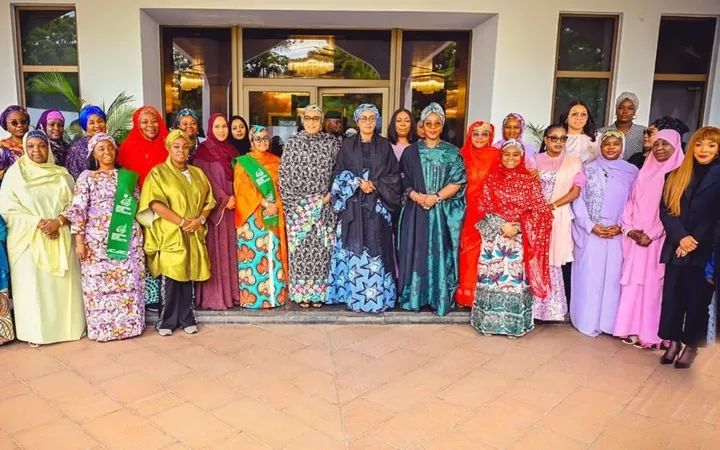Wife of the President, Senator Oluremi Tinubu, has called for legislative backing for the Office of the First Lady at both the federal and state levels, drawing parallels with the institutional framework in the United States. She emphasized that such legislative support would enhance the capacity of First Ladies to implement impactful initiatives that align with the Renewed Hope Agenda of President Bola Ahmed Tinubu’s administration.
Speaking at the Second Quarterly Meeting of Renewed Hope Initiative (RHI) State Coordinators held at the State House, Presidential Villa, Abuja, Senator Tinubu commended the wives of State Governors for their dedicated efforts in advancing the Initiative’s objectives. She noted that the Renewed Hope Initiative has, over the past two years, continued to uplift vulnerable Nigerians through targeted empowerment programs.
“We are helping one person at a time. We are reaching the less privileged. Nigeria is a blessed country with abundant resources, and we must harness them for inclusive development,” she stated.
Senator Tinubu expressed deep concern over the recent spate of violence across the country, condemning it as “evil and unfortunate.” She urged women and mothers to intensify prayers for national peace and unity, while also remaining active contributors to Nigeria’s development.
Reaffirming her commitment to public health, the First Lady stressed the need for continued advocacy on critical health challenges including HIV/AIDS, Hepatitis, Syphilis, Tuberculosis, and Cervical Cancer. She urged stakeholders to remain proactive in creating awareness and providing support systems for affected communities.
In a major step to address menstrual hygiene and promote girls’ health, Senator Tinubu unveiled the “Flow With Confidence Initiative”, which will distribute 10,000 cartons of disposable sanitary towels per state, targeting adolescent girls in rural communities across Nigeria.
The initiative is expected to reduce period poverty, keep more girls in school, and promote dignity among young women, especially in underserved areas.
